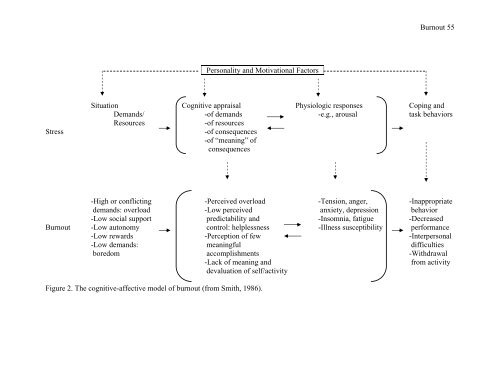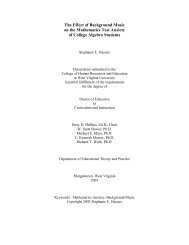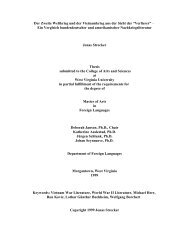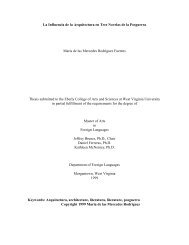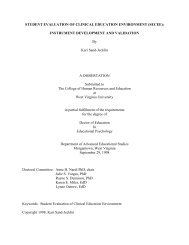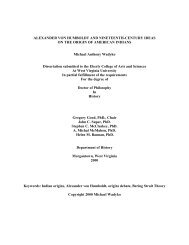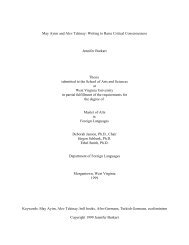Coach and Athlete Burnout - West Virginia University
Coach and Athlete Burnout - West Virginia University
Coach and Athlete Burnout - West Virginia University
Create successful ePaper yourself
Turn your PDF publications into a flip-book with our unique Google optimized e-Paper software.
Personality <strong>and</strong> Motivational Factors<br />
<strong>Burnout</strong> 55<br />
Situation Cognitive appraisal Physiologic responses Coping <strong>and</strong><br />
Dem<strong>and</strong>s/ -of dem<strong>and</strong>s -e.g., arousal task behaviors<br />
Resources -of resources<br />
Stress -of consequences<br />
-of “meaning” of<br />
consequences<br />
-High or conflicting -Perceived overload -Tension, anger, -Inappropriate<br />
dem<strong>and</strong>s: overload -Low perceived anxiety, depression behavior<br />
-Low social support predictability <strong>and</strong> -Insomnia, fatigue -Decreased<br />
<strong>Burnout</strong> -Low autonomy control: helplessness -Illness susceptibility performance<br />
-Low rewards -Perception of few -Interpersonal<br />
-Low dem<strong>and</strong>s: meaningful difficulties<br />
boredom accomplishments -Withdrawal<br />
-Lack of meaning <strong>and</strong> from activity<br />
devaluation of self/activity<br />
Figure 2. The cognitive-affective model of burnout (from Smith, 1986).


